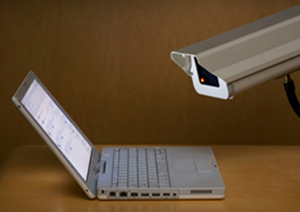
SUVA (Radio NZ International / Dateline Pacific / Pacific Media Watch): The Fiji Law Society says a decree provision allowing phone and internet monitoring in the days before the general election in September is open to abuse and could allow the government to access people's telephone and internet records, reports Radio NZ International.
Play audio 3m 16s
Transcript:
The Fiji Law Society says a decree provision allowing phone and internet monitoring in the days before the election is open to abuse.
Section 63 says any person is prohibited from communicating political messages by telephone, internet, email, social media or other electronic means 48 hours before polling opens.
Violating the decree can result in a US$27,000 fine, or 10 years in jail.
Mary Baines reports:
The Law Society president, Dorsami Naidu, says the provision, worded to include all people in Fiji, is not a result of poor drafting but was intended to try to control the public. Mr Naidu says restrictions on what the media and political parties can say in the days before an election are not uncommon internationally. But he says a provision restricting all citizens is very unusual, and is a breach of freedom of speech, expression and privacy.
DORSAMI NAIDU: It's not poor drafting. I think it was done very intentionally, they must have something in mind. It seems as though they want to control our thoughts and minds prior and during the election process, when we're supposed to be going back to democracy.
Mr Naidu says the provision suggests surveillance by government on citizens is a possibility.
DORSAMI NAIDU: Though we won't be privy to what our own secret surveillance people do, or what the government does, it's open to abuse. Political parties and individuals can be targeted in the name of this Decree, and that may affect the elections.
A Fiji academic, Dr Wadan Narsey, says the provision is intended to strike fear into people. Dr Narsey says the Bainimarama government has been successful in controlling the media in Fiji, but cannot control people expressing opinions on social media.
WADAN NARSEY: My goodness, how are they going to monitor it? This is electronic surveillance - are they being authorised by this Decree to conduct electronic surveillance on our citizens and to influence what they do and say to other people, their friends, their relatives or anybody? I mean the whole thing is quite frightening in this sense.
A media expert, Pat Craddock of the journalism programme at the University of the South Pacific, says such a provision is unworkable.
PAT CRADDOCK: Surely I can talk on my cellphone, on my computer, on Facebook, and there are those things the government can't control. There are blogs all over Fiji, and many of them are very scurrilous, and the government has wanted to control them in the past and they haven't managed to date.
But Mr Craddock says if the government really wanted to, it could target a specific people.
PAT CRADDOCK: First of all the government has got to get hold of me - they've got to tap. And this seems to me to be beyond their power, the government. They haven't got a huge secret service, there's no way they can have. But they could certainly tap on a few people, so if you want to give it the worst intention, it could scare the hell out of people.
Communications companies Vodafone Fiji and Telecom Fiji Limited could not be reached for comment. The Elections Commission chair, Chen Bunn Young, or the elections supervisor, Mohammed Saneem, could not be reached for comment on how it planned to enforce the provision.
This work is licensed under a Creative Commons Attribution-NonCommercial 3.0 New Zealand Licence.




